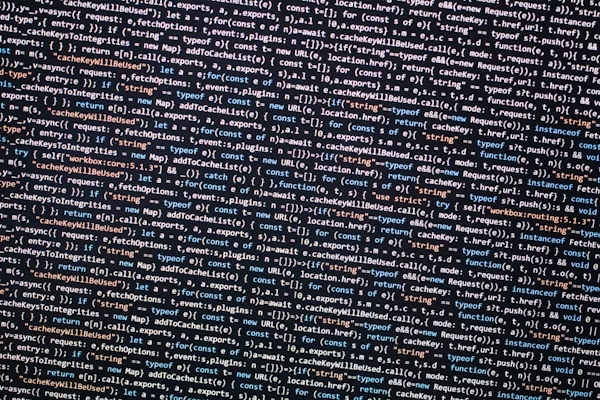In today’s fast-moving digital world, we often encounter odd-looking strings and codes while browsing, troubleshooting networks, or simply exploring online. One such mysterious string that might catch your eye is 185.63.253.2pp. At first glance, it looks like an IP address—but with an unusual twist: the addition of “pp” at the end, which isn’t standard for IPs. So, what exactly is this? Is it a typo, a technical error, or something more concerning? Should you be worried about it?
This article dives deep into the nature of 185.63.253.2pp, explaining what typical IP addresses look like, why this particular format is unusual, and what risks or safety tips you should keep in mind when encountering such strings online. Whether you’re an IT professional, cybersecurity enthusiast, or everyday internet user, understanding these details will help you navigate the web more safely and confidently.
What Is an IP Address and Why Does It Matter?
Before we examine the odd “185.63.253.2pp,” it’s important to understand the basics of IP addresses. An IP address (Internet Protocol address) is like a digital home address assigned to devices connected to the internet. It allows computers and servers to find each other and communicate. The most common format you see on the internet is called IPv4, which looks like four numbers separated by dots — for example, 192.168.0.1. Each number ranges between 0 and 255.
IP addresses are essential for everything you do online, from visiting websites to sending emails. Without them, your computer wouldn’t know where to send requests or where to receive data from.
Why Is 185.63.253.2pp Not a Standard IP Address?
Looking at 185.63.253.2pp, the first part “185.63.253.2” resembles a valid IPv4 address. However, the letters “pp” attached at the end do not belong in a proper IP address format. Here’s why:
IP addresses do not contain letters or characters; they consist only of numbers separated by dots.
The “pp” suffix breaks the format and suggests this might be a typo, an encoding error, or perhaps part of some custom code or identifier.
Because of this, 185.63.253.2pp is not a valid IP address as per internet standards. This raises questions about what the string is supposed to represent and whether it signals a problem or a particular intent.
Could 185.63.253.2pp Be a Typo or Software Glitch?
One of the simplest explanations for seeing such a string is human or software error. Sometimes:
A typing mistake can accidentally add extra characters to an IP address.
Software that logs or displays IP addresses might malfunction or corrupt the data.
Malware or suspicious programs can inject strange text to confuse users or hide malicious activities.
If you’ve come across 185.63.253.2pp while checking logs, messages, or even URLs, it’s quite possible it’s an error. But sometimes, odd-looking IP-like strings are intentional and may serve a specific technical or malicious purpose.
Could 185.63.253.2pp Be Part of a Malicious Scam or Cyberattack?
In the cybersecurity realm, attackers often use tricky techniques to mask their activities or lure victims. While 185.63.253.2pp itself is not a valid IP, it could be part of:
Phishing attempts, where attackers use deceptive URLs or addresses to confuse users.
Malware domains or command-and-control servers disguised with fake addresses.
Spam or botnet operations that generate random or malformed IP-like strings to bypass filters.
Because it’s not valid, it could also be a way to trick automated systems or users into clicking unsafe links or trusting suspicious sources.
If you notice such strange strings connected with emails, downloads, or websites, it’s wise to be cautious and run thorough security checks.
How to Verify and Analyze Suspicious IP Addresses Like 185.63.253.2pp
When encountering weird internet strings, it’s smart to analyze them carefully:
Double-check the format: Real IPv4 addresses only have numbers and dots. Anything else is suspicious.
Use IP lookup tools: These services can confirm if the IP part (e.g., 185.63.253.2) is assigned to a real server or location.
Scan for malware: If the string is connected with suspicious files or websites, run antivirus and anti-malware scans.
Consult cybersecurity resources: Forums, official blacklists, and threat databases might have information if this is linked to known threats.
Remember, just because something looks odd doesn’t mean it’s harmful, but it should raise a flag to proceed carefully.
What Is the Real 185.63.253.2 IP Address?
Stripping away the “pp” suffix, 185.63.253.2 itself appears to be a legitimate IP address within the IPv4 range. If you perform a lookup on this IP, you might discover that it belongs to a certain organization, hosting service, or country.
Knowing the actual owner or geographical location of the IP can help:
Determine if the traffic coming from it is expected or suspicious.
Identify potential sources of spam or cyberattacks.
Understand which services or websites might be involved.
But the “pp” at the end is invalid and could mislead anyone trying to trace or block this IP.
How Do Internet Systems Handle Invalid IP Formats?
Networks, firewalls, and servers usually reject IP addresses that do not follow the proper format. If you try to enter an IP with letters like “pp,” it will typically:
Cause errors in web browsers or network tools.
Be flagged or blocked by cybersecurity software.
Not resolve or connect to any valid destination.
This means the 185.63.253.2pp string is unlikely to function as a valid internet address, and any system that processes IPs correctly will ignore or reject it.
Can Such Malformed Addresses Affect Your Online Security?
Though invalid IPs themselves don’t cause harm, their presence can be indicators of underlying issues:
They might be clues to phishing or hacking attempts where attackers use fake or confusing addresses.
Sometimes, malware will create fake entries in system files or logs, including malformed IPs.
If you encounter these in email headers, browser histories, or firewall logs, it’s a sign to investigate further.
Good cybersecurity practice involves monitoring such anomalies and ensuring your devices are protected.
How Can You Stay Safe If You See Strange IP-Like Strings?
Whether you’re an IT professional or casual user, spotting weird IP strings calls for caution:
Avoid clicking suspicious links or downloading unknown files connected to such addresses.
Use updated antivirus and malware scanners regularly.
Maintain strong passwords and enable multi-factor authentication on important accounts.
Keep your operating system and software patched against vulnerabilities.
Learn to identify phishing emails and scam websites that often use confusing addresses.
Education and vigilance remain your best defense.
The Role of IT Specialists and Cybersecurity Analysts
For experts in the field, encountering 185.63.253.2pp or similar anomalies is a common challenge. Their role includes:
Investigating the origin and intent of such strings.
Using advanced tools to monitor traffic and block harmful connections.
Educating users and companies about emerging threats and irregularities.
Updating security protocols to handle ever-evolving cyber risks.
Their expertise helps maintain trust and safety in the interconnected digital world.
Common Misconceptions About Strange IP Addresses
Some people might think that any unusual string resembling an IP address is automatically dangerous, but that’s not always the case. Sometimes, these can be:
Simple typographical errors without malicious intent.
Test or placeholder addresses used in software development.
Corrupted data caused by technical glitches.
Understanding the context and analyzing carefully helps avoid unnecessary panic or false alarms.
Conclusion
In summary, 185.63.253.2pp is not a valid IP address by internet standards. The numeric part looks like a genuine IPv4 address, but the “pp” suffix breaks the format and suggests either a typo, software error, or potentially a deceptive technique used by cybercriminals.
When you come across such unusual strings, it’s essential to stay alert and verify their legitimacy. Using reliable tools, practicing good cybersecurity habits, and knowing how IP addresses work will help you safely navigate the internet and avoid falling prey to scams or malware.
Understanding these details empowers everyone—whether you are a casual user or a cybersecurity professional—to maintain a safer digital environment.
FAQs About 185.63.253.2pp
Q1: Is 185.63.253.2pp a real IP address?
No, it is not a valid IP address due to the “pp” suffix, which is not part of standard IP formats.
Q2: Could 185.63.253.2pp be dangerous?
It might be part of a scam or malware trick but could also be a simple typo; always be cautious.
Q3: How can I check if an IP address is real?
Use online IP lookup tools that validate and provide information about IP addresses.
Q4: What should I do if I see strange IP addresses in my logs?
Investigate further with cybersecurity tools and consult experts if unsure.
Q5: Why do some IP addresses have extra characters?
They could be errors, corrupted data, or attempts to mask malicious activity.
Q6: Can normal users protect themselves from such threats?
Yes, by keeping software updated, avoiding suspicious links, and using security tools regularly.


